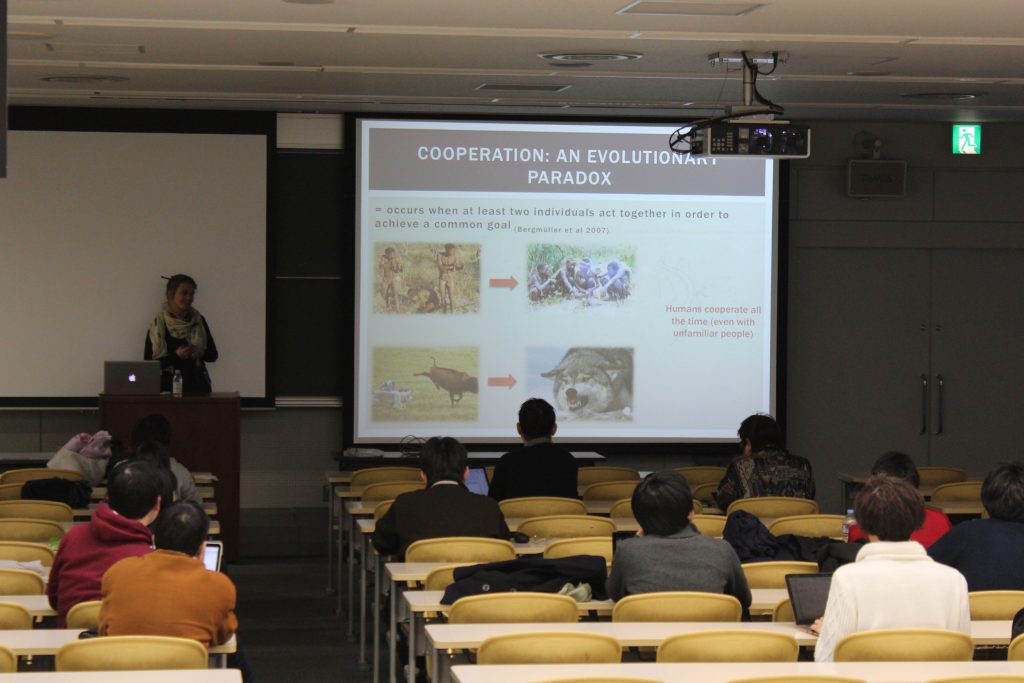【CERSSコロキウム】The evolution of cooperation: lesson from intraspecific canine cooperation
日時:2017年1月23日(月)16:30-18:00
場所:北海道大学人文社会科学総合教育研究棟W103
スピーカー:Dr. Friederike Range (Senior Scientist, the Comparative Cognition Unit, Messerli Research Institute, University of Veterinary Medicine Vienna)
タイトル:The evolution of cooperation: lesson from intraspecific canine cooperation
アブストラクト:Compared to the rest of the animal kingdom, human cooperation is exceptional and considered to be at the origin of our advanced cognition, technology and culture. Even more rudimentary forms of cooperation that might occur in non-human animal species seem to necessitate high attentiveness towards other individuals, social tolerance and potentially other-regarding preferences, while inequity aversion might function as a stabilizing factor.
To investigate the evolutionary origins of cooperation and its underlying mechanisms, researchers have mainly investigated our closest relatives – non-human primates. However, in some respects canids may be more comparable to humans. It has been suggested that during domestication dogs have gone through convergent evolution with humans and have been selected for cooperating and communicating with them. Moreover, the social organization of wolves, similarly to that of humans, is structured around the family and is characterized by cooperation in pup-rearing, joint territorial defense and group hunting.
In this talk, we will investigate the evolution of cooperation by testing human-raised but pack-living wolves and dogs in their cooperative interactions with conspecifics, focusing especially on pro-social behavior and aversion to inequity. We will discuss to what extent differences in the socio-ecology of wolves (family structure, cooperative hunters) and dogs (multi-male/multi-female groups, scavengers) may explain observed differences in regard to intraspecific cooperation between the two species. Understanding intraspecific canine cooperation and its underlying mechanisms in addition to dog-human (wolf-human) cooperation is likely to enhance our understanding of the underlying mechanism of cooperation and it’s evolution.

